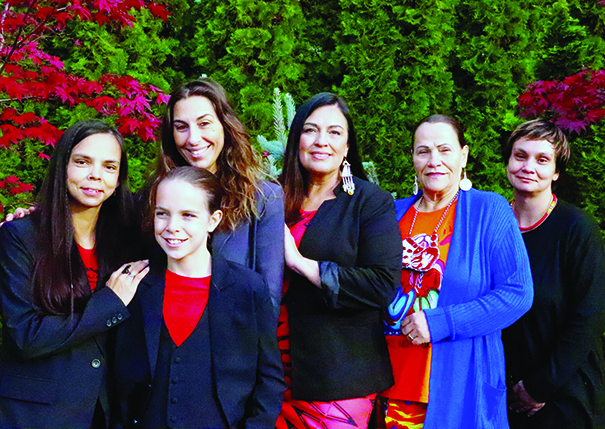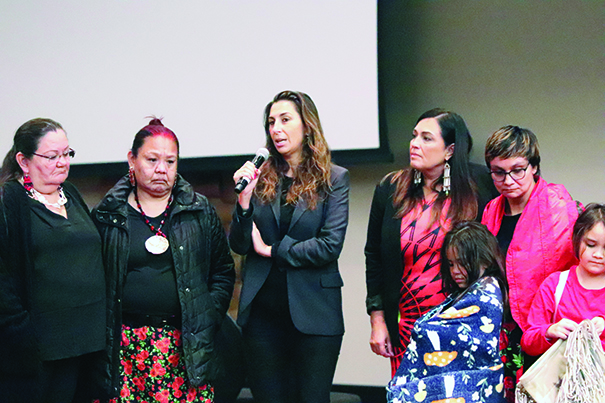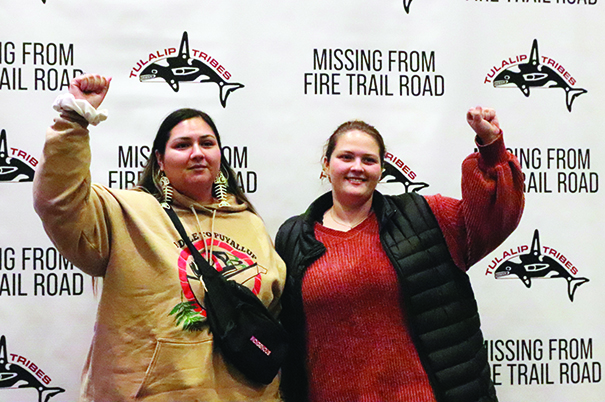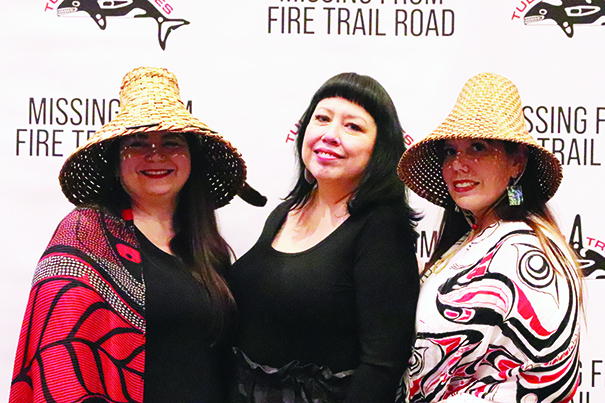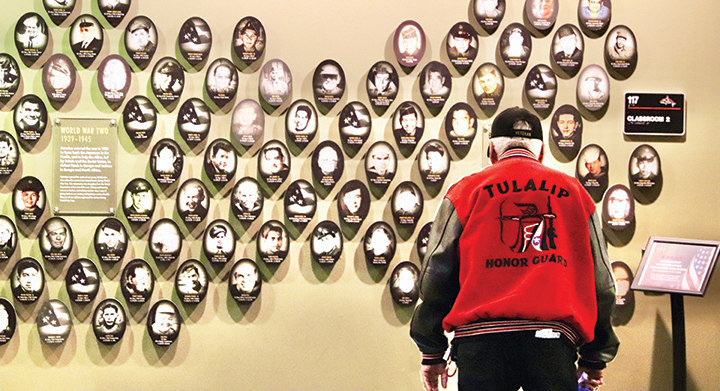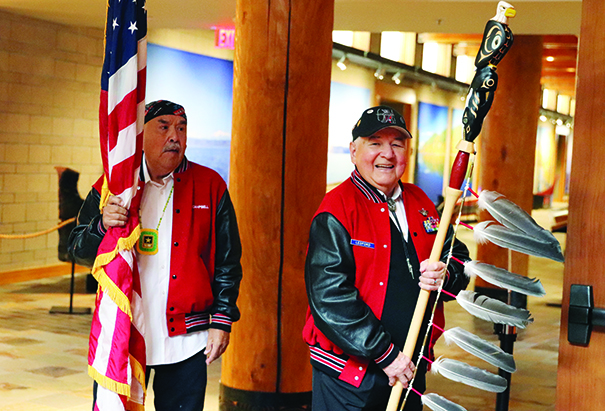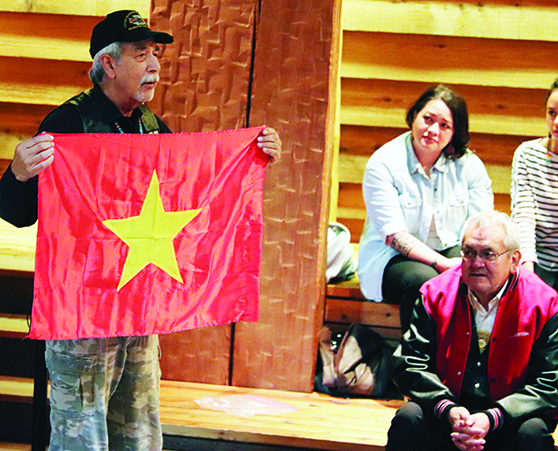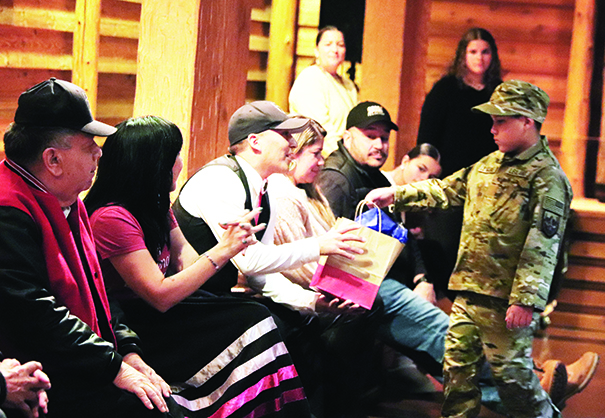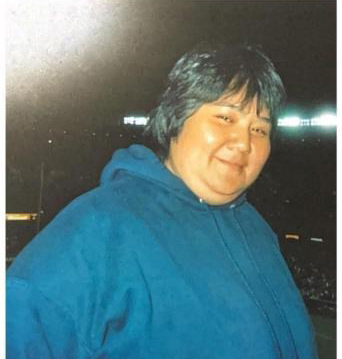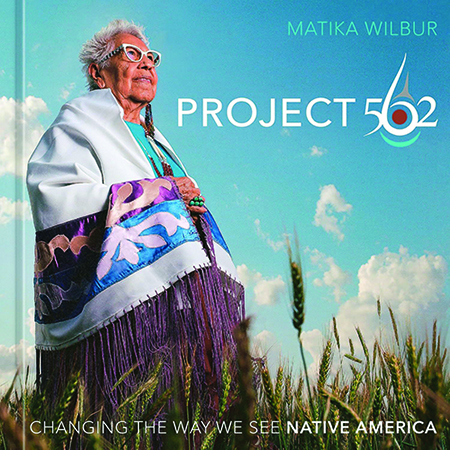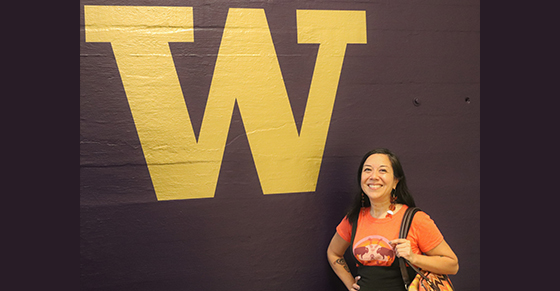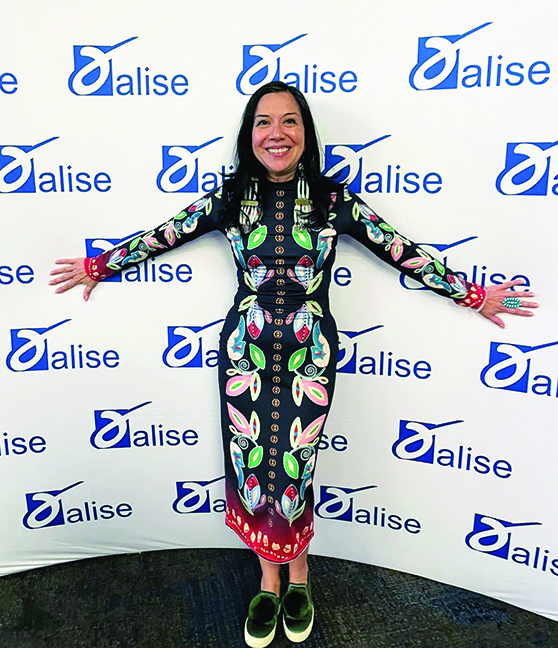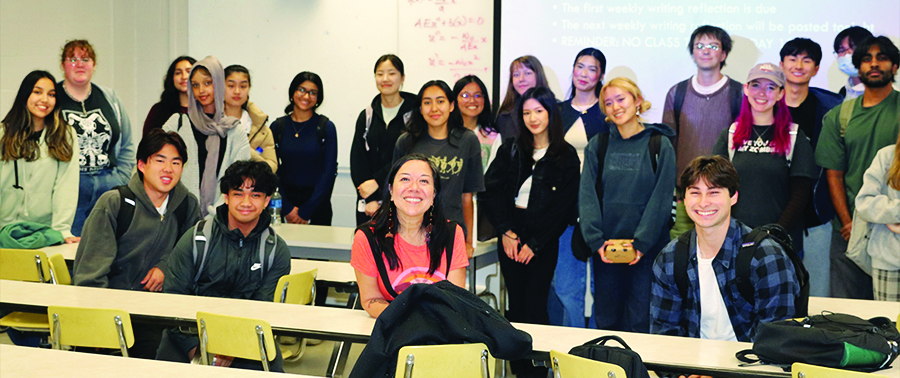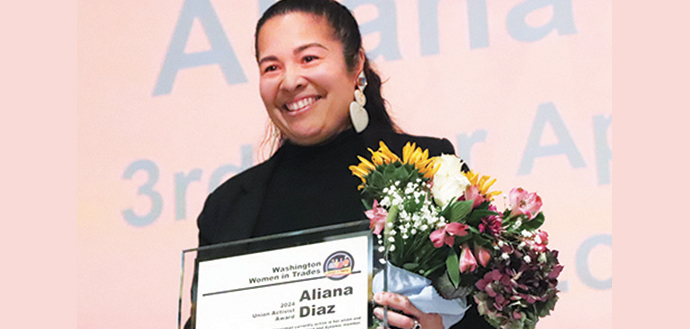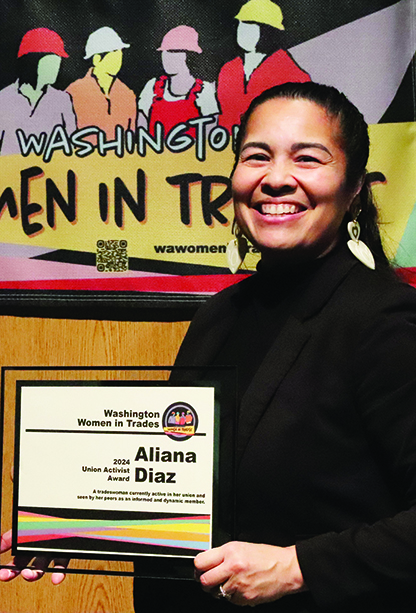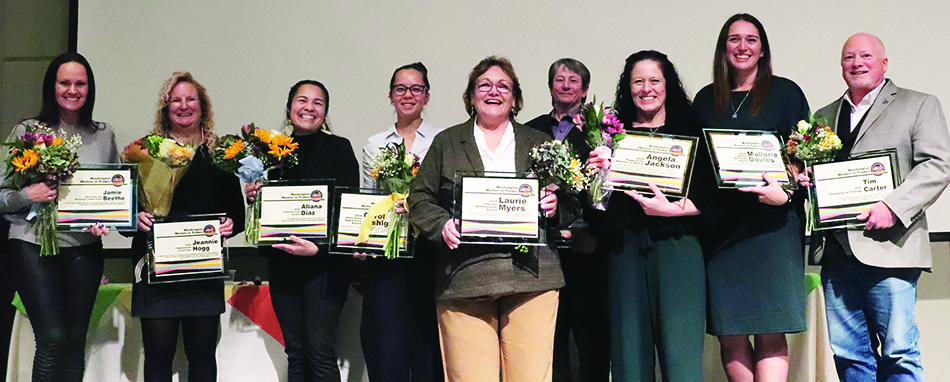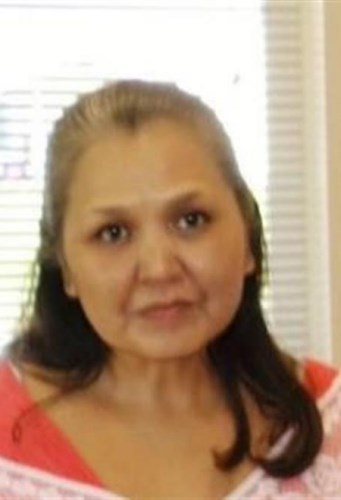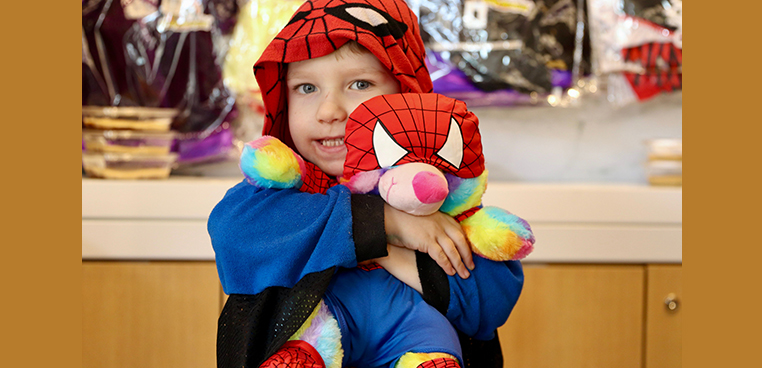
By Kalvin Valdillez, Tulalip News
A young kiddo, dressed as the Amazing Spider-Man, eagerly led his mom and younger sibling into an animal kingdom unlike any other. Filled with wonderment and excitement, the boy carefully perused the multitude of animals until he found his perfect companion, a tie-dye teddy bear.
Taking in the entire experience with a bright smile, the young Spidey then brought his new bestie to life by personally filling the plushie with stuffing and inserting a little heart into the bear. Next, he got to pick out an outfit for his tie-dyed friend. Looking through hundreds of outfits, including everything from first responder uniforms to monkey and ducky pajamas, his choice was a no-brainer when his eyes landed upon the superhero section. After dressing his new teddy in an identical Spider-Man costume, a special moment took place as the kiddo looked at his new creation with adoration that could melt your heart and gave him the biggest hug of all time.
“That’s what it’s all about,” exclaimed the owner of the new business venture, Marvin Velasquez. His wife and business partner, Dana Higgins, agreed with that sentiment and ranks those specific moments as her all-time favorite thing about their new storefront, Build an Animal Buddy & Tasty Treats.
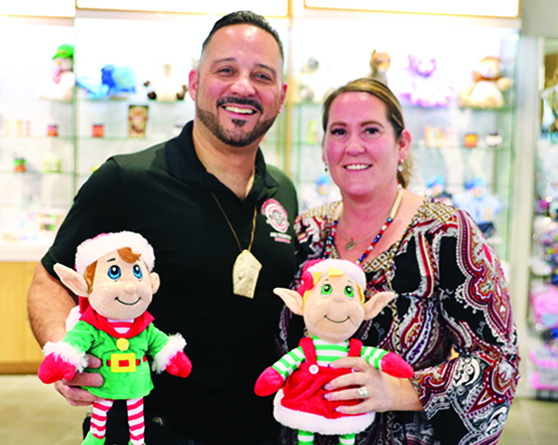
Nestled in between the Kate Spade New York Outlet and Ecco footwear, Build an Animal Buddy & Tasty Treats held their grand opening on the afternoon of November 6. Donning a cedar hat and traditional beadwork, Marvin felt it was important to incorporate his Tulalip heritage and culture into the opening of the store, encouraging his children to rock their beads at the grand opening as well. He also enlisted culture bearer, Tony Hatch, to lead the ribbon cutting ceremony where he offered a song and prayer on the historic day.
“This is all kind of surreal, I will admit that,” Marvin expressed. “The outlet mall has been here going on 20 years, I was quite surprised to find out that I am the first Tulalip tribal member to have a storefront here. I believe we might’ve had a Tribal member-owned kiosk before, but to be the first to open a store is a good feeling. It’s also something that I think my parents, who have both passed now, would be very proud of.”
Marvin and Dana made headlines locally for bringing the first axe throwing establishment to our area. Tomahawk Axe, which is located in Smokey Point next to the McDonalds, has been a success over the past three years.
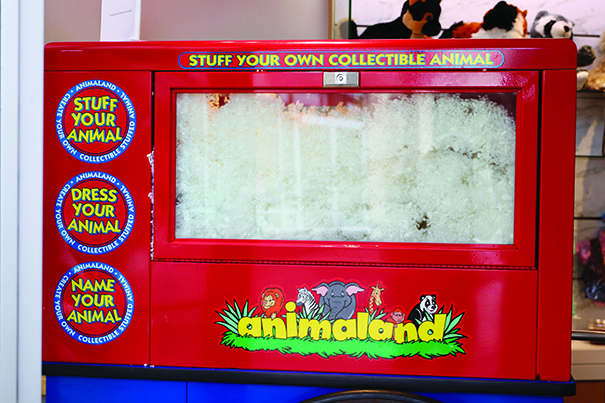
Though busy with the daily operations of Tomahawk Axe, the family somehow found time to start a side hustle in which they traveled to local events and fairgrounds with the Build an Animal Buddy mobile trailer. The side hustle was such a smash hit amongst the kids, that they decided to add it into the fold at Tomahawk Axe. And from there, Animal Buddy blossomed, growing in popularity by the day, to the point where they decided they needed a bigger space.
Said Marvin, “Adding Animal Buddy to Tomahawk Axe was such an overwhelming success, we decided to try to build upon that. We scouted the Seattle Premium Outlet Mall and were able to negotiate a spot here. It is nice because it’s close to home, it’s on our reservation, and it’s a closer location for our people to come in. I will tell you though, it’s not an easy task. It’s very expensive to be here because there’s a lot of high-end products here. But there’s not a whole lot to do for the little ones at the outlet mall. This gives them a venue to come in to and get their own little treat and an animal buddy to carry along with them as they’re here shopping with their parents.”
Upon walking into Build an Animal Buddy & Tasty Treats, you are met with a clean, welcoming, and organized space. And when checking out the storefront, many parents are surprised to see how budget-friendly it is, in comparison to the retail chain that most people think of when it comes to creating your own plushie.
“Animal Buddy brings a more affordable experience to a lot of kids whose families can’t afford the other,” Dana stated. “We wanted to put something together for those kids because it’s fun and it’s an experience I think every kid should be able to have. We have over 90 animals to choose from, in addition to our Christmas line as well. The most pleasing thing for me is seeing that excitement when they get to choose their animal, give it a name, dress it, and take it home.”
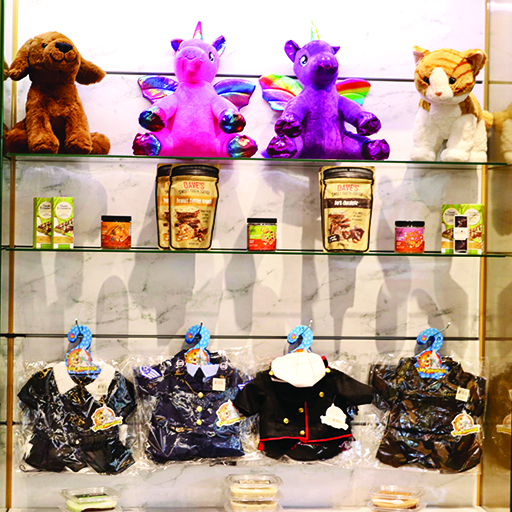
For only $25, the kids get to pick out any animal or character in the store, fill it with stuffing, make a wish and place either a heart or star inside their plushie. They also get to choose between either a whimsical-themed box or backpack to carry their new friend home. All the outfits in the store come at an additional cost, but are reasonably priced, with their most expensive outfit ringing up at about $13. And for just $5 extra, the customer can purchase a voice box to record a personal message to place inside their stuffed animal.
All of the animals sit high on their top shelves along the walls of the storefront. Below the plushies there is a large variety of sweet and salty snacks on display all throughout the space, including several popcorn mixes and highly sought after candy bars. In fact, in their first week of business, there have been multiple customers who traveled to the store to purchase the infamous Dubai chocolate bars, that are currently all the hype on TikTok.
In the short amount of time that Build an Animal Buddy & Tasty Treats has been open, they have had a wide array of customers visit the store, whose ages ranged from babies to elders.
A couple examples of their adult clientele make for some great heartwarming stories, such as a gentleman in his 70s who purchased a stuffy identical to his dog, who is about to transition to the afterlife. He took the voice box home and recorded his dogs bark, immortalizing the voice and memory of his four-legged pal before it’s passing. Another example was when an auntie, whose niece lives in a different state, came in to buy a plushie. Before sealing the gift up, the aunt recorded a few messages for her niece, telling her how much she loved and missed her.
“It’s things like that that really make us happy and proud,” Dana shared. “A lot of people don’t think about things like that. They might think, ‘oh this is just a place to make stuffed animals for a child’, but it’s so much more. Like when a mom can record her voice for her child, or vice versa, they’ll have that for years to come. And they can listen to it whenever and however many times as they want. We have just about every idea of a stuffy you can think of, there’s something for everybody here. I think that’s pretty neat.”
Earlier, we mentioned how important it was for Marvin to incorporate his culture into this business. His ultimate hope is to pass on those values, along with any lessons learned while operating two businesses, to his children. Which of course aligns with the Tulalip tradition of passing on their teachings to the next generation.
He said, “The Native dream is alive. We have five kids between the two of us who are all involved in the business. My three kids are Tribal members, and they were here for the grand opening. They’re super excited because they love this business. My eleven-year-old, Quinn, is always willing to help customers and she can ring people up on the cash register. My sixteen-year-old, Catherine, is very good at that as well. She’s going to be working here part time. And my son Marvin Jr., he’s excited too, but I think he’s more fond of the tasty treats. It’s pretty amazing for us to be able to teach our kids entrepreneurship. And also, it’s amazing how we really are going to be able to carry our legacy on through our kids by making sure they’re involved, so they know how to keep our businesses going and can contribute to the family businesses.”
Build an Animal Buddy & Tasty treats are gearing up for a busy holiday season. They already have numerous Christmas-themed plushies available for purchase, including Santa Claus, Frosty the Snowman, the elf on the shelf, and Rudolph the red-nosed reindeer. Thanks to the large space of the store, Marvin and Dana are also able to host birthday parties and other get togethers. And if you are unsure which animal to pick for a Christmas or birthday present, they also offer gift cards, which provides the opportunity for your loved one to visit the storefront and experience the fun and joy of creating their own stuffed animal.
“We have everything from farm animals to jungle animals, you name it,” Marvin informed. “We have all kinds of different outfits such as a police officer, firefighter, captain of a ship. We even offer sports uniforms, cheerleader outfits, and shoes. It’s just so fun and the kids are always super excited to do it. And the outfits tie everything together – there’s nothing like having a Spider-Man tiger or a kung fu chicken!”
For further information, and to plan a party or order a plushie online, please visit their website at www.BuildAnAnimalBuddy.com. And be sure to give their social media pages a follow to stay up to date on any specials or events happening at Build an Animal & Tasty Treats.

